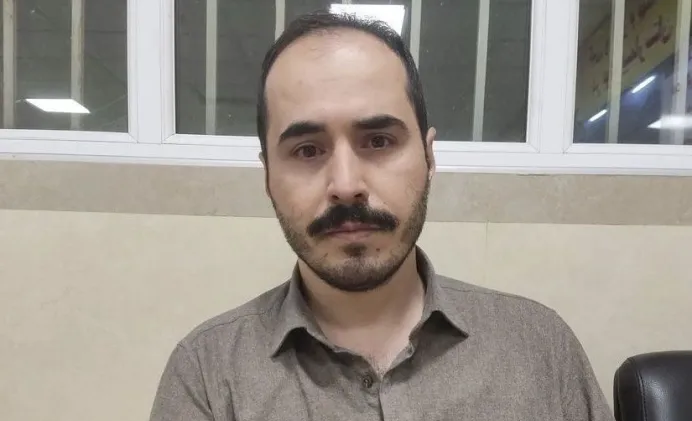Australia/Israel Review
Scribblings: Thinking of the victims of Iranian regime brutality
Oct 26, 2022 | Tzvi Fleischer

In November 2021, the AIR was proud to publish the words of a brave Iranian dissident, Hossein Ronaghi, who risked his life to tell the truth about what it is like to live in the Islamic Republic. In his article, which originally appeared in the Wall Street Journal, Ronaghi presciently wrote about the oppression of women in Iran by means of the morality police and enforcement of dress standards such as the mandatory hijab (headscarf), the spark for the current unprecedented wave of protests in Iran:
“Roaming morality police brutalise women for not wearing the mandatory hijab. They burst into parties where there is alcohol and co-ed mingling to beat and arrest young people. Repeat ‘offenders’ are imprisoned, publicly flogged or executed.
“This isn’t 1984 or The Handmaid’s Tale. This is our Iran.”
Now, Ronaghi is reportedly paying the price for his courageous truth-telling.
Since Sept. 24, Mr. Ronaghi had been in Iran’s notorious Evin Prison, and his family says that on Sept. 26, he called his mother and said the following: “Mom I can’t talk now; they’ve broken my legs.” Then the connection was cut. His friends and family also say an eyewitness in the prison saw him “being dragged to the infirmary with a visibly broken leg,” while another saw him vomiting blood.
Ronaghi’s brother, Hassan, tweeted on Oct. 14, “The Islamic Republic intends to kill my brother Hossein.” And he may be right – death could very well be the outcome for this remarkably courageous individual, who had already endured six years in Iranian prisons as well as torture by security forces even before his latest arrest.
But if that is his fate, he will not be the only Iranian individual to be murdered after exhibiting remarkable bravery in confronting Iran’s oppressive theocratic regime over its abuses of women, of religious and cultural minorities, or of freethinkers and ordinary working Iranians.
Reports say hundreds of protestors have been killed in the regime’s crackdown on the protests, many of them young women, even schoolgirls.
One remarkable story concerns an Iranian security forces invasion of the Shahed Girls High School in Ardabil on Oct. 13. Reports say security forces demanded students sing a pro-regime song praising Supreme Leader Ayatollah Ali Khamenei and violently beat any that refused to do so. Numerous girls were hospitalised as a result and 16-year-old Asra Panahi reportedly died of her injuries.
This does not appear to be an isolated incident. There have been numerous videos published on social media of Iranian schoolgirls across the country removing their hijabs, and chanting anti-regime slogans. There are also videos of security forces firing tear gas into schools and dragging arrested students into waiting cars. At least two other schoolgirls, 17-year-old Nika Shahkarami and 16-year-old Sarina Esmailzade, were also reportedly killed by security forces over the past couple of weeks.
The Iranian protests are astonishing and inspiring – but the stories of people like Hossein Ronaghi and Asra Panahi are a reminder of the terrible suffering so many Iranians are enduring to try to change the unbearable situation in their country. Whatever happens with the protest movement, their suffering must be neither forgotten nor forgiven.
“Racist Talmudic Practices”
Jewish prayers – the kind of prayers that Jews recite in synagogues all over the world every day – are actually “racist Talmudic practices”, according to an official media outlet of the “moderate” Palestinian Authority (PA).
WAFA, the official news agency of the PA, filed a report on Oct. 15 about Jews reciting their Sabbath prayers that day at the Western Wall in Jerusalem, Judaism’s holiest place of prayer, during the Jewish festival of Sukkot. The WAFA report describing this anodyne event, which has occurred every year for many decades, said:
“Hundreds of settlers performed today, Saturday, racist Talmudic rituals, at Al-Buraq Wall (the western wall of the blessed Al-Aqsa Mosque). Our correspondent reported that hundreds of settlers stormed the western area of the blessed Al-Aqsa Mosque and performed Talmudic rituals, on the sixth day of the Hebrew “Sukkot”, under the strict protection of the Israeli occupation forces…”
These statements show just how ugly – and undeniably antisemitic – official Palestinian media discourse about Jews can get.
Characterising everyday Jewish prayer as “racist Talmudic rituals” is clearly demonising all Jewish religious worship, painting Judaism itself as offensive, conspiratorial and unacceptable.
PA sources have used similar language before – about potential Jewish prayer at the Temple Mount, from which the PA has been campaigning to exclude Jews. They had to demonise Jewish worship to do so because just saying Jews should not be allowed to visit or pray, but Muslims should, is not a very convincing argument. Now that language is being extended to ordinary prayer at the Western Wall – never historically a Muslim religious site or place of prayer, as it has been for Jews for centuries (except when Jews were physically excluded between 1948 and 1967).
The WAFA report’s reference to the site as the “Al-Buraq Wall (the western wall of the blessed Al-Aqsa Mosque)” reflects a wider Palestinian campaign to deny any Jewish historical or religious connection to any part of the land of Israel, and insist all Jewish sites are really stolen Muslim and Palestinian ones (moreover, the Wall is not part of the Al-Aqsa Mosque, but a retaining wall of the Temple Mount compound).
Furthermore, all Jews praying at the Wall are characterised as “settlers” who “stormed” the site – also language developed to demonise Jews who visit the Temple Mount.
The “moderate” Palestinian Authority is promoting the grossest hate against not only Israelis, but Jews generally, through its official channels. And people wonder why Israel has struggled to make peace with it?
Tags: Antisemitism, Iran, Islamic Extremism, Palestinians






